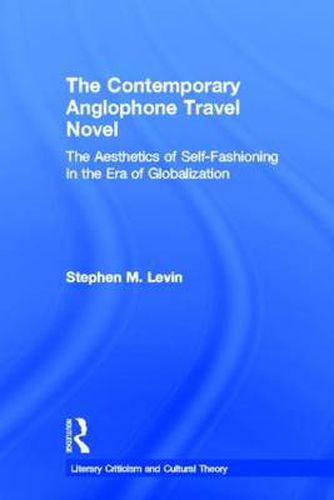Readings Newsletter
Become a Readings Member to make your shopping experience even easier.
Sign in or sign up for free!
You’re not far away from qualifying for FREE standard shipping within Australia
You’ve qualified for FREE standard shipping within Australia
The cart is loading…






The Contemporary Anglophone Travel Novel explores the themes of alienation and displacement in a genre of post-World War II novels that portrays the pursuit of an authentic travel experience in a culturally unfamiliar place. Levin explores two questions: why does travel to an undiscovered place-one imagined outside the bounds of modernity-remain an enduring preoccupation in western civilization; and how does the representation of adventure travel change in the era of mass culture, when global capitalism expands at a rapid pace. The book argues that whereas travel writers between the wars romanticized their journeys overseas, travel writing after World War II takes an increasingly melancholic and nihilistic view of a commercial society in which adventure travel no longer proves capable of producing a sense of authentic selfhood. Through close analysis of specific texts and authors, the book provides a rich discussion of anglophone literature in the cultural context of the twentieth-century. It examines the capacity of popular culture for social critique, the relationship between leisure travel and postcolonial cultures, and the idealization of selfhood and authenticity in modern and postmodern culture. The study reflects the best potential of interdisciplinary scholarship, and will prove influential for anyone working in the fields of contemporary literature, cultural theory, and cross-cultural studies.
$9.00 standard shipping within Australia
FREE standard shipping within Australia for orders over $100.00
Express & International shipping calculated at checkout
The Contemporary Anglophone Travel Novel explores the themes of alienation and displacement in a genre of post-World War II novels that portrays the pursuit of an authentic travel experience in a culturally unfamiliar place. Levin explores two questions: why does travel to an undiscovered place-one imagined outside the bounds of modernity-remain an enduring preoccupation in western civilization; and how does the representation of adventure travel change in the era of mass culture, when global capitalism expands at a rapid pace. The book argues that whereas travel writers between the wars romanticized their journeys overseas, travel writing after World War II takes an increasingly melancholic and nihilistic view of a commercial society in which adventure travel no longer proves capable of producing a sense of authentic selfhood. Through close analysis of specific texts and authors, the book provides a rich discussion of anglophone literature in the cultural context of the twentieth-century. It examines the capacity of popular culture for social critique, the relationship between leisure travel and postcolonial cultures, and the idealization of selfhood and authenticity in modern and postmodern culture. The study reflects the best potential of interdisciplinary scholarship, and will prove influential for anyone working in the fields of contemporary literature, cultural theory, and cross-cultural studies.